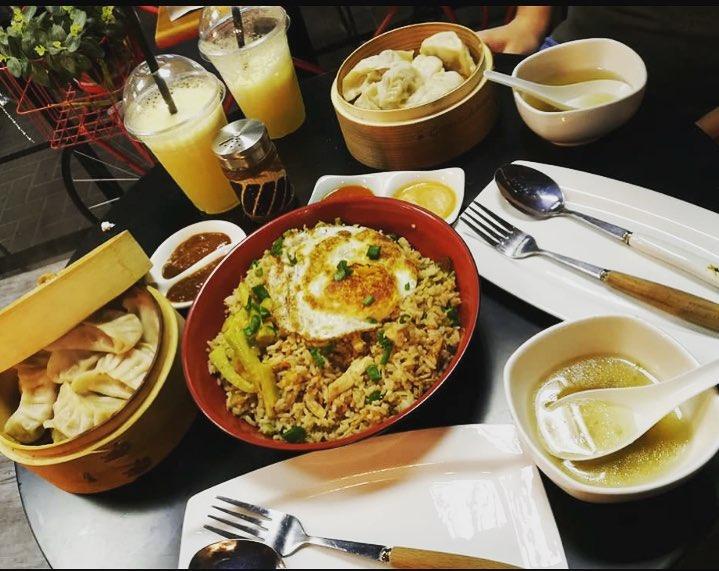
One of the great joys of living and working in the Gulf is brunch in Dubai. For expats especially, this Friday ritual is well-earned – after all, taking a job in the United Arab Emirates often means working longer hours than one would at home. Of course, the money is also alluring, but plenty of companies require at least a half-day of work on Saturday, which means for many workers, Friday is the only day off.
Hence the anticipation of Friday brunch, where choices abound at Dubai’s finer resorts, hotels and restaurants. Name a cuisine, and it’s yours for the indulging. And we are not talking about your American or British brunch, where you may just score one welcoming drink or pay extra for those mimosas. The price of entry, which can easily cost around $100 and well over $200, often includes all the free-flowing booze you want.
There is a price to be paid for all this excess, which in fairness, is why many people enjoy visiting and living in Dubai in the first place. Life without excess in Dubai is like living in Paris without a walk along the River Seine in Paris or Hong Kong without its famous ferry.
But Friday brunch in Dubai comes with a cost, a jarring one when considering food waste. According to the Economist Intelligence Unit (EIU) a person living in the UAE wastes a staggering 434 pounds (197 kilos) of food annually. If your jaw hasn’t dropped at that number, briefly consider food waste in Saudi Arabia, which EIU estimates to be 941 pounds (427 kilos) per person, per year.
Also ponder the fact that by far, most food available in the Gulf States like the UAE is imported from abroad. Sure, some food products like eggs and vegetables are raised in the UAE, and can be found in the grocery stores and hypermarkets found all over Dubai and Abu Dhabi. But then the distance at which food travels goes farther and farther. Mangos and carrots come in from India, which is akin to shipping produce from California to the U.S. east coast. Jordan and Kenya are also major food suppliers. But the strawberries, smoked salmon and prosciutto are coming from a continent or two away. Add up those emissions, and most likely your head will spin faster than it will after a five-hour brunch debauchery episode somewhere at the Palm Jumeirah or in the shadow of the Burj Khalifa.
And as with the case of many emerging economies, the UAE does not have the waste management infrastructure to cope with all that uneaten food. Composting in a climate where the average temperature hovers around 106°F (41°C) in the summer is not quite practical; options like the bokashi system won’t scale up at any point soon.
Nevertheless, to the credit of more restaurants and hotels, Dubai is seeing a slow yet steady shift in how brunch unfolds every Friday. Ongoing changes reflect how long-standing doubts over whether Dubai could ever become remotely “sustainable” could soon become reality.
For one thing, Dubai’s government says it will implement regulations that will nudge the emirate’s hospitality sector to become more responsible and behavior, whether those changes involve food, energy or water.
Meanwhile, more restaurants chefs and managers are taking on the problems of food waste.
Eating local is starting to catch on. More attention to sustainable seafood has been part of this chatter. And according to one of the local UAE daily newspapers, more venues are conscious of food waste and therefore are bringing back the a la carte menu – or at a minimum, offering a hybrid of menu choices paired with stations offering appetizers or made-to-order entrees.
Some restaurants are turning to technology to tackle food waste.
The luxury resort Fairmont Palm Jumeirah, for example, has harnessed technology from Winnow, an artificial technology (AI) firm, to measure, manage and mitigate food waste. The AI solution measures the flow of food at buffet stations so that in real time, chefs have an idea of which dishes to prioritize or slow down while they prepare and cook for the hotel’s restaurants. Winnow says its technology has saved the property about $140,000 a year, reduced food waste by over 60 percent and kept the equivalent of about 70,000 meals out of trash bins and landfill. More hotels within the UAE have recently deployed Winnow’s technology.
It is going to be a herculean effort to change how Dubai’s residents view Friday brunch. Arguably, food waste is among many challenges confronting the entire UAE, from all that power needed for air conditioning homes and offices, the dependence on driving in order to go to and from those buildings and one end result, the country’s struggle with air pollution. The one-two punch of technology and awareness to claw back at food waste, however, is a step, bite and sip in the right direction.

Leon Kaye has written for 3p since 2010 and become executive editor in 2018. His previous work includes writing for the Guardian as well as other online and print publications. In addition, he's worked in sales executive roles within technology and financial research companies, as well as for a public relations firm, for which he consulted with one of the globe’s leading sustainability initiatives. Currently living in Central California, he’s traveled to 70-plus countries and has lived and worked in South Korea, the United Arab Emirates and Uruguay.
Leon’s an alum of Fresno State, the University of Maryland, Baltimore County and the University of Southern California's Marshall Business School. He enjoys traveling abroad as well as exploring California’s Central Coast and the Sierra Nevadas.














